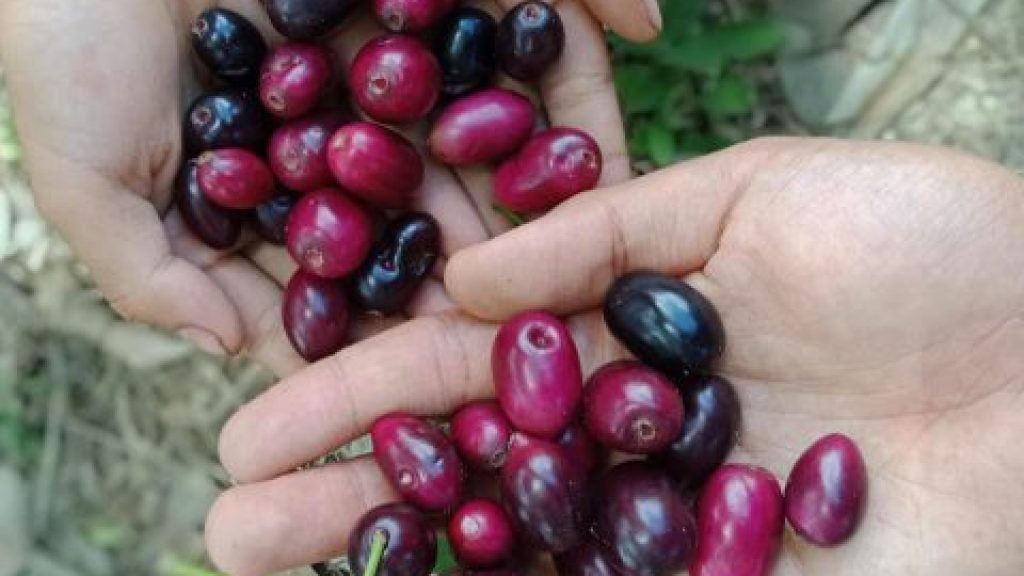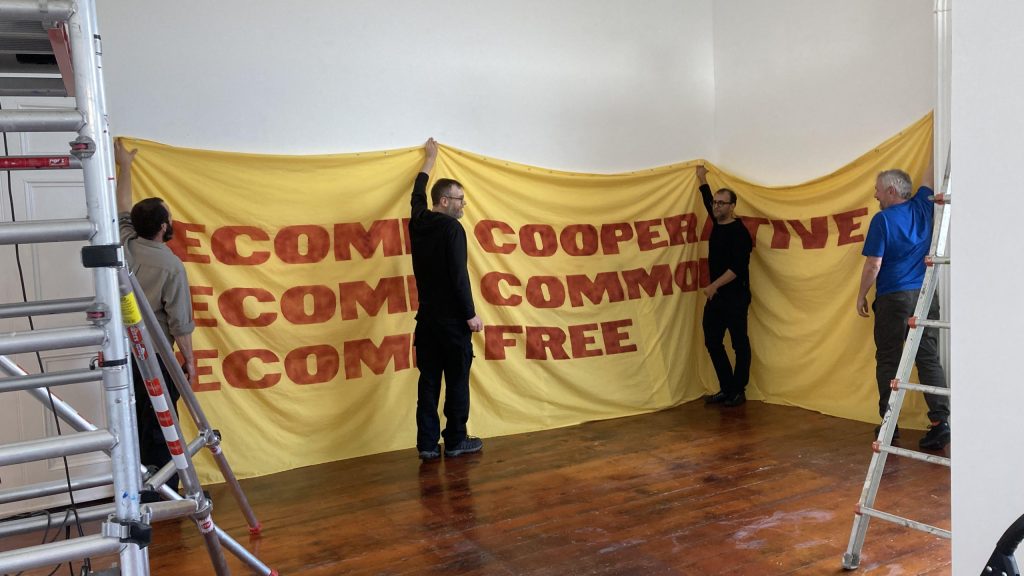The book and digital publication Climate Justice Code: For artists, art workers, and arts organisations situated in the Global North is available now! You can download a free digital version of the publication here. The physical version will soon be in bookshops and art institutions in the Netherlands and beyond. To already obtain a copy at our office, please e-mail info@casco.art.
The Climate Justice Code (CJC) invites arts practitioners and arts organizations to reconcile the values they (re)present with their practices. It proposes that they extend their sense of responsibility towards the (eco)systems they are embedded in to recognise and act on the urgency of climate and environmental breakdown.
Climate and environmental breakdown have caused the Earth’s sixth mass extinction event. It is disrupting and destroying generations of human and more-than-human life, shared environments, cultural practices, knowledges, ecosystems, and heritage. The uneven extermination of life on this planet is a continuation of the destruction of lifeworlds that have been at the centre of over five hundred years of ever-expanding extractive colonial capitalism. The CJC is a tool for responding to climate breakdown trans-oceanically and intersectionally, across the cultural sector, highlighting the shared yet differentiated power and responsibility we all have to address the crisis.
The CJC aligns itself with the climate justice movement, which means it recognizes that climate and environmental breakdown are rooted in the extractive structures of colonialism, imperialism, patriarchy, white supremacy, and capitalism. However, those most marginalized by neocolonial racialized capitalism continue to be hit the hardest. Black, Indigenous, womxn-led, LGBTQI+, and lower caste or class communities, and others around the world, whose lands, waters, air, and lives are continuing to be destroyed, have struggled with the many crises of these extractive systems for centuries.
The CJC acknowledges the work already happening within climate justice, environmental justice, ecofeminist, and land rights movements, often led by frontline and Indigenous communities, and takes practical steps to support, reinforce, and ally with them.
For all forms of life, crises resulting from climate change challenge how to be, how to know the world, and how to understand ourselves in relation to one another and the cosmos. Any response requires fundamentally transitioning away from extractive systems and relations through radical forms of action, divestment, care, and repair.
For arts practitioners and art organizations, that means addressing our funding sources, our programming policies and practices, our accessibility policies and practices, our long-term environmental commitments and carbon footprint, our sites of practice (online and physical), our staff and support teams, our ethical practices, our transparency and accountability practices, our commitment to change, and being open to becoming smaller. It means decentering the knowledge structures of modernity and making space for a plurality of knowledges, practices, and approaches. We can only address climate and environmental breakdown by working on the interconnections between all of these issues.
The Code In Action
The CJC is a demand and a tool for arts practitioners and arts organizations to use and hold themselves and each other accountable – across hierarchies of power, positions, or relations – for their responsibilities towards climate justice.
It is a code of ethics for practical application that is structured around a series of core sections. The work of putting the principles of the code into practice will take different forms depending on the context and resources of each user, so the CJC functions as an anchor to keep returning to rather than a checklist of tasks. Individuals and organizations who take on the CJC are invited to make an ongoing commitment to develop it in practice; the CJC grows and adapts in response to the contexts and conditions it develops within.
History of the Code
The process of the Climate Justice Code started off in our second Assembly for commoning art institutions, Our House is on Fire, in October 2019 where it was drafted by the editorial committee alongside the steering committee and further developed by all the participants of the Assembly, with the intention that art institutions and artists in the Netherlands and beyond adopt it. In the years following the drafting of the code, the Climate Justice Code Working Group realized the final publication through an evolving group of contributors.
The idea of the Code became a tool for responding to the climate crisis, and aligning itself with the climate justice movement, which stands for system change, not climate change. The Code invites those with the power of art and imagination to reconcile how we practice our politics within daily life as artists and art institutions. At the same time, it considers other codes already developed by a broad representation of cultural and creative professionals and implemented in the Netherlands – such as the Fair Practice Code, the Cultural Diversity Code, and the Cultural Governance Code – that are closely interconnected, and that were developed to leverage local and national governmental cultural policy.










